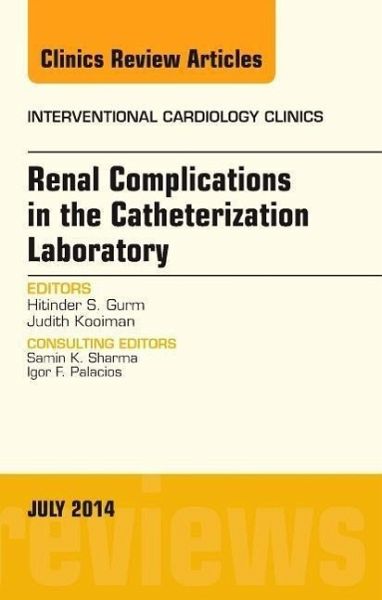
Renal Complications in the Catheterization Laboratory, an Issue of Interventional Cardiology Clinics
Volume 3-3

PAYBACK Punkte
49 °P sammeln!
Interventional cardiologists are able to perform minimally invasive procedures, such as angioplasty and stenting, due to imaging technologies that allow them to see inside the heart and blood vessels without open surgery. Such imaging often requires injection of contrast media, which are generally safe, but for some patients with drug sensitivities or compromised kidney function, contrast-induced nephropathy (CIN) can result. CIN is a major complication that can increase in-hospital mortality. This issue of Interventional Cardiology Clinica addresses the management, treatment, and prevention o...
Interventional cardiologists are able to perform minimally invasive procedures, such as angioplasty and stenting, due to imaging technologies that allow them to see inside the heart and blood vessels without open surgery. Such imaging often requires injection of contrast media, which are generally safe, but for some patients with drug sensitivities or compromised kidney function, contrast-induced nephropathy (CIN) can result. CIN is a major complication that can increase in-hospital mortality. This issue of Interventional Cardiology Clinica addresses the management, treatment, and prevention of renal complications in the catheterization laboratory.













